The full review is available here
English review at BLF
German review at my website
Summary
The description of the Cyansky Carbon sounds tempting! Constant brightness of 2000 lm for four hours and a modern LiFePO₄ battery, which you hardly ever find in flashlights. Plus practical functions such as the integrated fast-charging via USB-C, a charge level indicator with five separate LEDs and a powerbank function.
All of this joy is somewhat diminished when you look at the rather simple direct-drive driver or the slightly greenish SST-20 LEDs, for which there would have been better alternatives.
And yet the Cyansky Carbon is a good choice in some situations: Even if it is not able to maintain the brightness perfectly, it achieves roughly 2000 lm for around four hours without excessive heat. It is quite suitable as a searchlight for longer missions at distances of around 50 m. It is also currently available for pre-order via Kickstarter at a very attractive price.
Got curious? The Cyansky Carbon is now available for pre-order on Kickstarter!
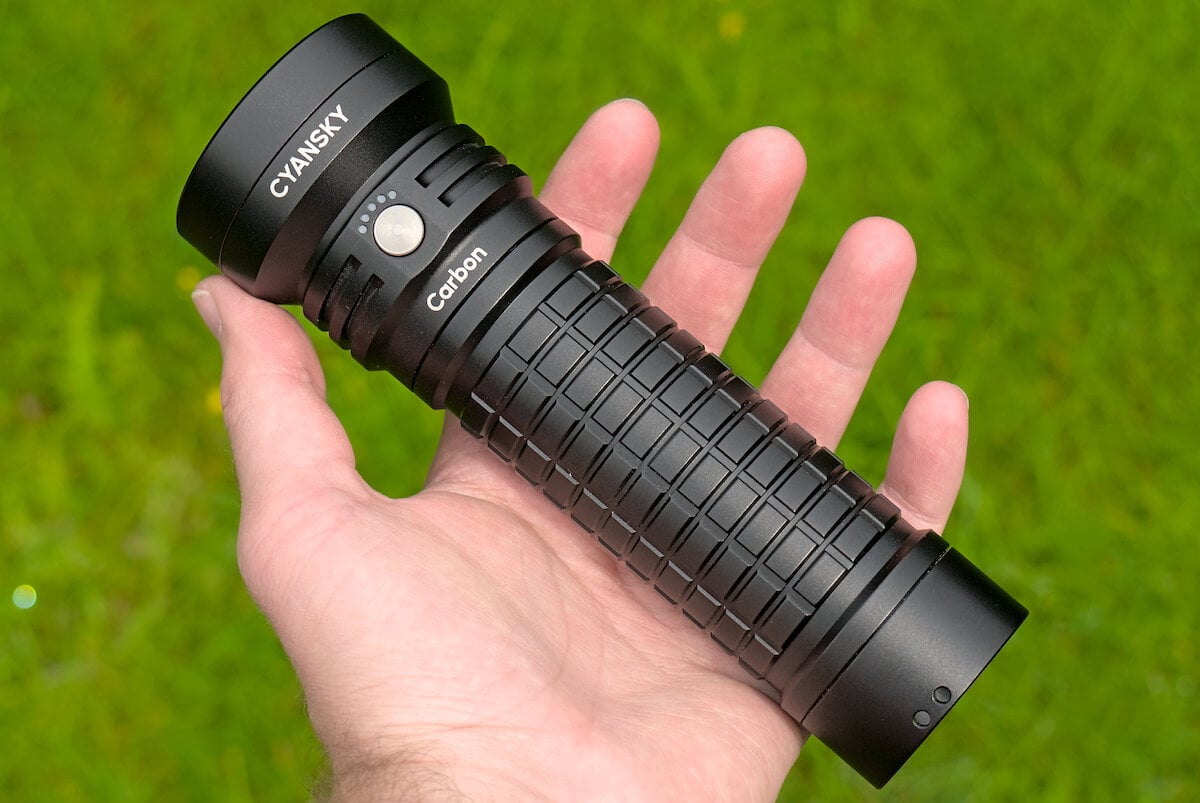
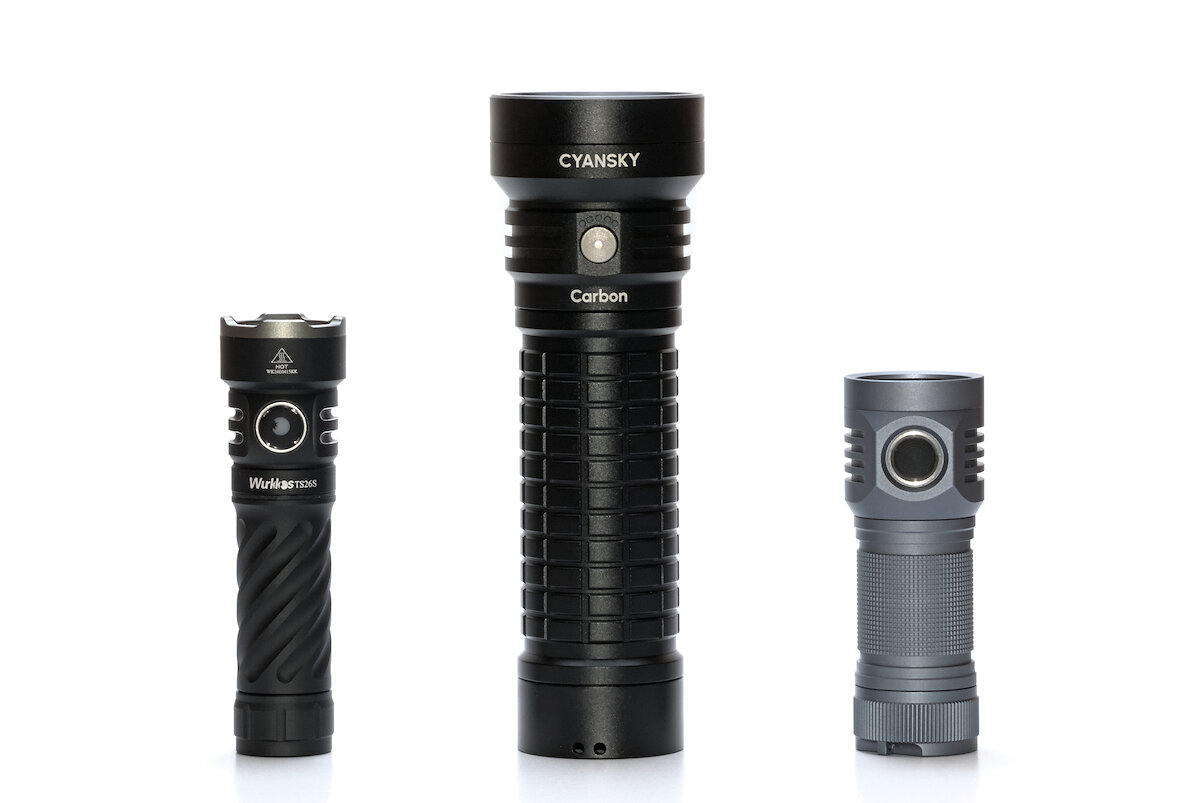
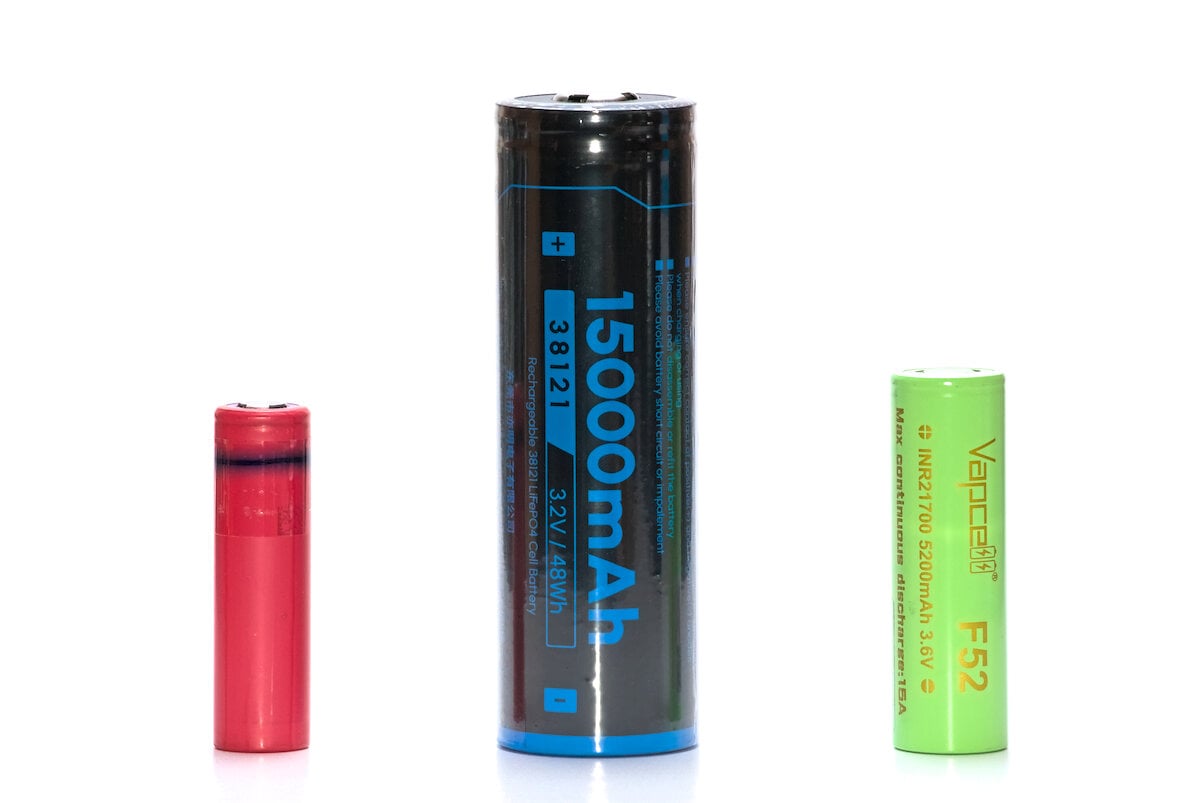
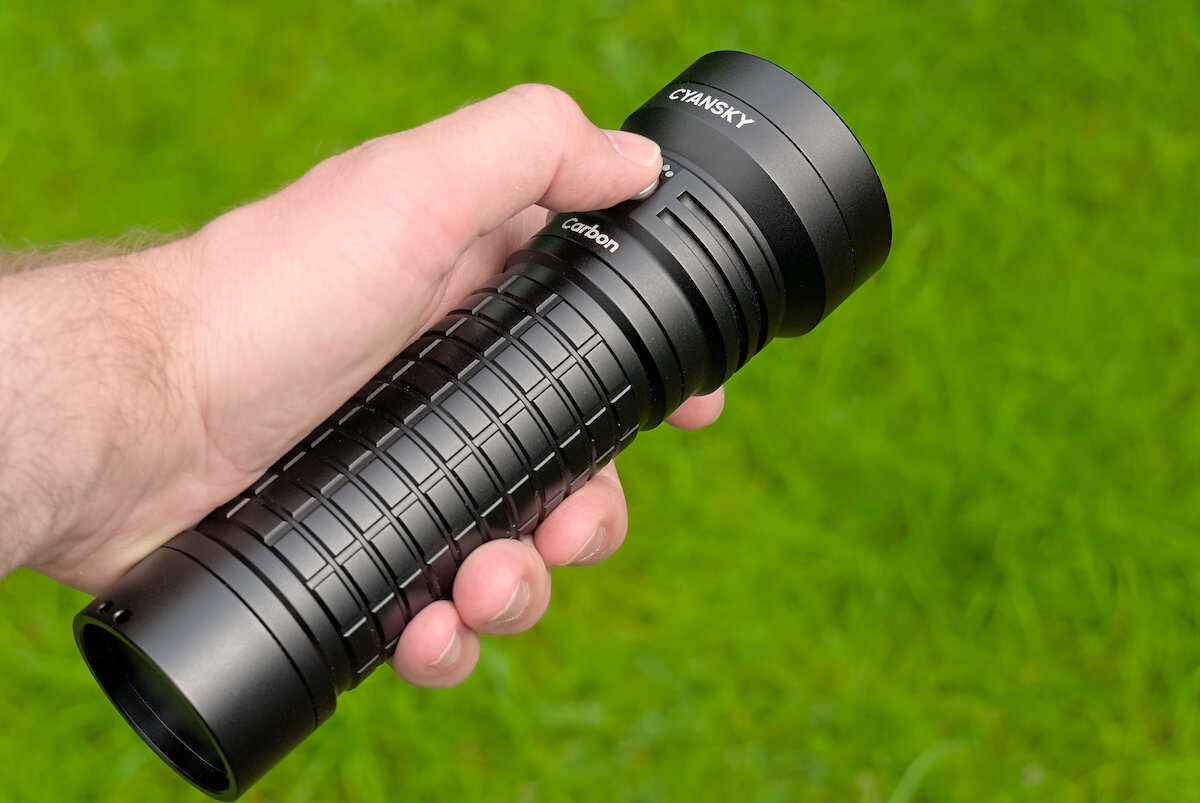
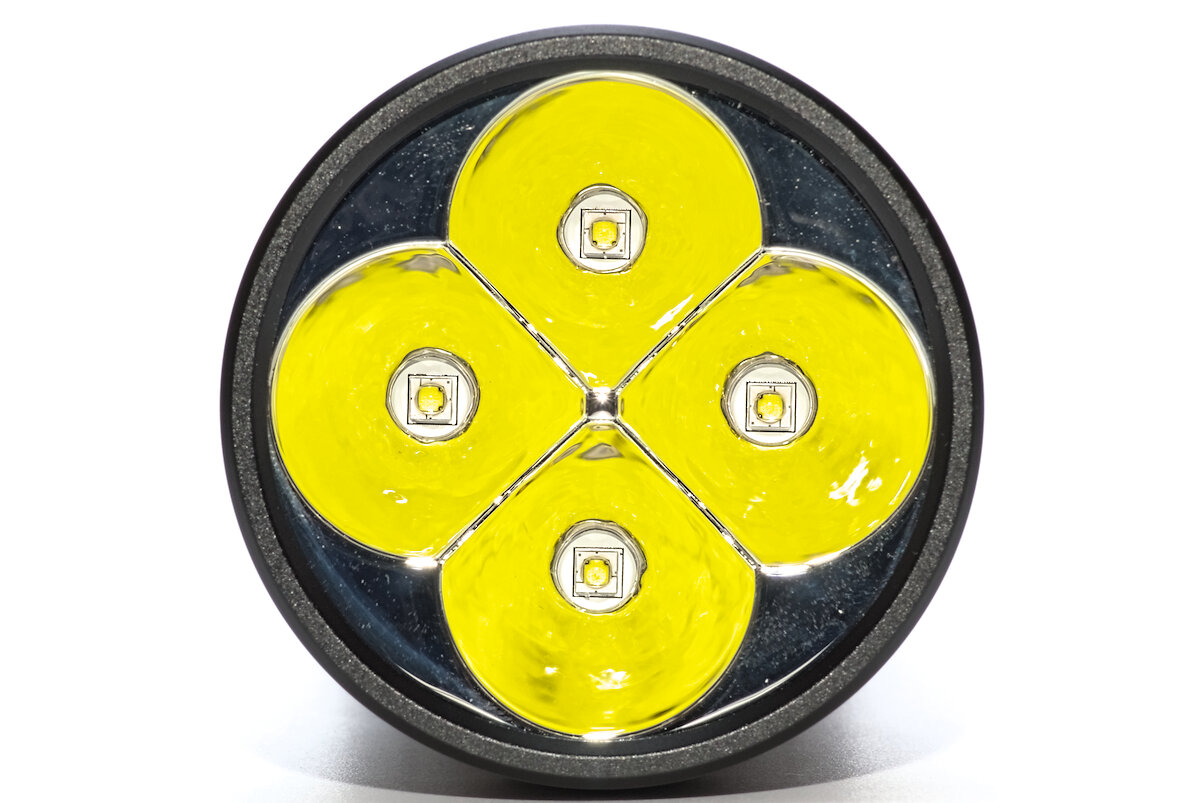
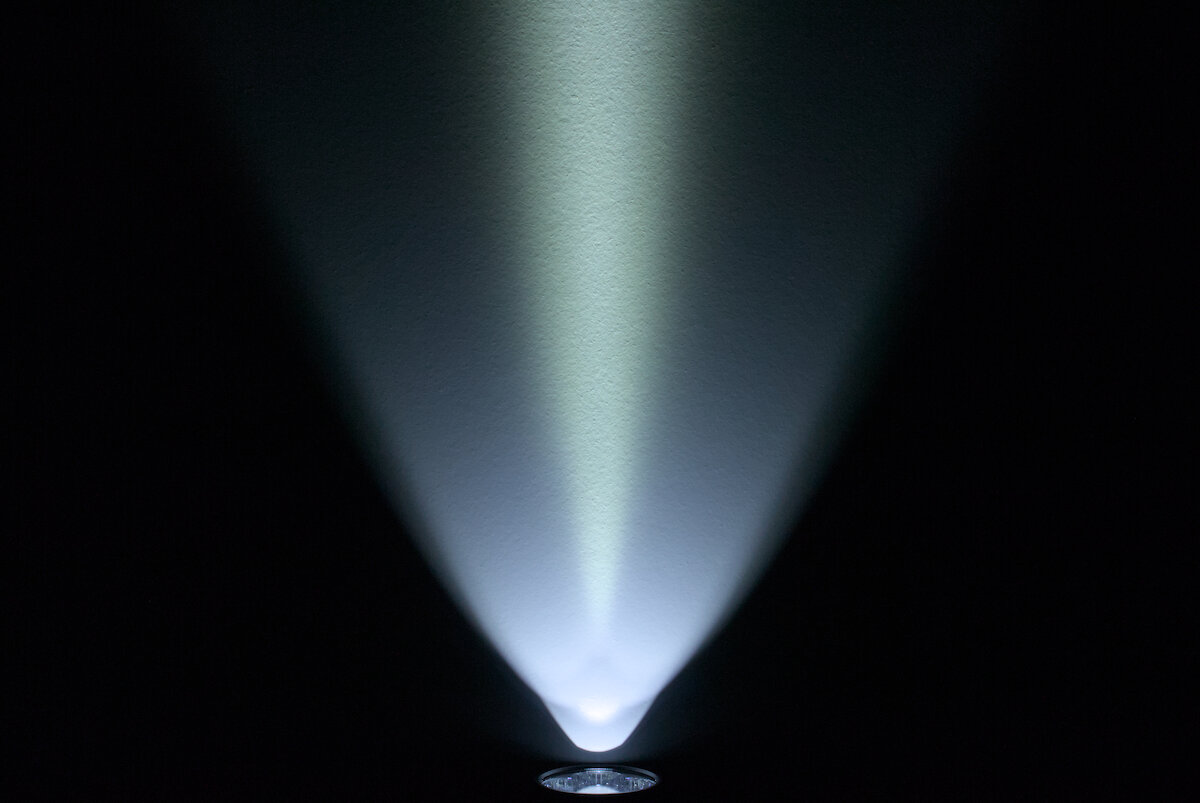








LFP batteries are now a lot cheaper per WH than LNC batteries so we will be seeing more of them I'm sure. Energy density is lower but maybe still ok for larger lights. The WH/liter of this battery (15AH 3.2v 38121) is around half that of a high capacity 18650. I didn't see the weight of the battery mentioned so can't compute WH/kg, but I didn't look closely.
As a tiny, relatively insignificant corner of the global supply chain, us flashlight nerds will get whatever is being cranked out by the bucketload for other industries. We got Li-Ion in 18650 form factors originally so readily because every laptop on Earth was stuffed with them for a while and they became a high volume commodity product. Now, BEV cars are being packed full of LiFePo cells which will undoubtedly become the new commodity standard until the next thing comes along.
There will always be enthusiasts paying top dollar for whatever is mathematically "the best," but products for ordinary consumers will by and large be designed around whatever is cheaply and readily available to the manufacturer. Jury's out on whether that's a good thing or not. LiFePo has a lower wattage density, but should be able to tolerate more charge cycles which is kind of the point. I guess that'll be attractive for buyers of whatever stupid trendy non-replaceable-battery gizmo goes on sale at REI next week...
Yeah, it's mentioned right at the beginning of the review: